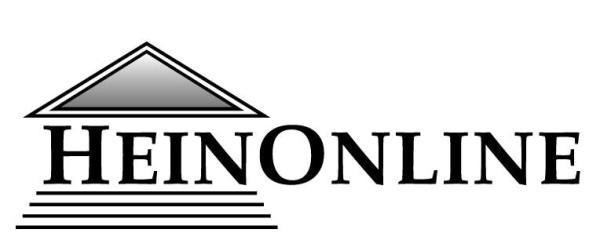ARISTOTLE POSTULATES OF A SOCIAL SYSTEM AS A MODEL FOR A MODERN STATE ORGANISATION
Abstract
Modern liberalism in the world, as a social framework of living and acting, is, at a great extent, characterised by political stagnation and intellectual decadence. On the other side, a dramatic increase of interest in Aristotle`s opus seems to reflect both cultural and political changes, or purely intellectual changes, happened during the last two decades. Because ot its understatement and practical inefficacy at certain issues, a participatory democracy, as an answer to the attitudes of the New Right, has largely lost its power of having an influence on the organisation of the modern society. That is why the models of the state organisation are more and more found in the ideas of the ancient philosophers and in the classical models of social solidarity. Nowadays, because of the previously mentioned reasons, there are once more opened the issues of the organisation of society and state, politics, sustainability of a political system, citizen political participation, the role of the middle class and education, to which a certain attention will be paid in this paper work through the prism of Aristotle`s postulates.
References
Aristotel, (1988). Nikomahova etika, Zagreb, Globus,
Aristotel, (1988). Metafizika, Zagreb, Globus
Aristotel, (1988). Politika, Zagreb, Globus
Badinter Arbitration Committe, Opinion no. 1 of 29 November 1991.
Cooper, C., (2008). Extraordinary Circumstances. The Jorney of a Corporate Whistleblower, John Wiley & Sons, Hoboken.
Freeman, S., (2000). Deliberative Democracy: A Sympathetic Comment, Philosophy & Public Affairs, 29 (4), pp. 371–418. (2012. Maj 15). Preuzeto sa: http://onlinelibrary.wiley.com/doi/10.1111/papa.2000.29.issue-4/issuetoc.
Gadamer, H., (1986). The Idea of the Good in Platonic-Aristotelian Philosophy, Trans. P. Christopher Smith. New Haven, CT.
Gajinov, M., (2009). Uloga i značaj Saveta za etička pitanja Društva sudija Srbije i standardi sudijske etike, Pravo – teorija i praksa, 26 (3–4), str. 11–24.
Habermas, J., (1994). Three Normative Models of Democracy, u: Benhabib, S. (ed.) Democracy and Difference: Contesting the Boundaries of the Political, New Jersey, Princeton University Press, pp. 21–30.
Hefe, O., (2009). Aristotelova politika, Beograd, Utopija
Occupy Wall Street, (2012. Maj 14). Preuzeto sa: http://www.occupywallst.org/
Šturm und drang, u Wikipediji (2012. Maj 9). Preuzeto sa: http://sr.wikipedia.org/wiki/%C5%A0turm_und_Drang.
Jaffa, V. H., (1952). Thomism and Aristotelianism: A Study of the Commentary by Thomas Aquinas on the Nicomachean Ethics, Chicago: The University of Chicago Press.
Jež, Z., Dunđerski, B., (2010). Neki aspekti odnosa škole prirodnog prava i Kelzenove normativističke teorije prava, Pravo – teorija i praksa, 27 (3–4), str. 38–45.
Jež, Z., (2008). Neki sociološki aspekti pojma demokratije, Pravo – teorija i praksa, 25 (1–2), str. 54–67.
MacIntyre, A., (1984). After Virtue: A Study in Moral Theory, 2nd edition, University of Notre Dame Press MacIntyre, Alasdair.
MacIntyre, A., (2001). Dependent Rational Animals: Why Human Beings Need the Virtues, Open Court.
Miller, Jr. F. D., (1997). Nature, Justice, and Rights in Aristotle’s Politics, Oxford University Press.
Moseley, A., (2005). Political Philosophy, Internet Encyclopedia of Philosophy, (2012. Maj 9). Preuzeto sa: http://www.iep.utm.edu/polphil/.
Murphy, M., (2011). The Natural Law Tradition in Ethics, The Stanford Encyclopedia of Philosophy (Winter 2011 Edition), Edward N. Zalta (ed.). (2012. Jun 5). Preuzeto sa: http://plato.stanford.edu/archives/win2011/entries/natural-law-ethics/
Pellet, A., (1992). The Opinions of the Badinter Arbitration Committee – A Second Breath for the Self-Determination of Peoples, European Journal of International Law, 3 (1), pp. 178–185.
Perović, S., (2006). Sloboda uređivanja obveznih odnosa i javni poredak, Zbornik PFZ, 56 (posebni broj), Zagreb, str. 401–424.
Report of the World Commission on Environment and Development to the UN General Assembly, 96th plenary meeting of 11 December 1987, A/RES/42/187.
Resolution of the Council and of the Representatives of the Governments of the Member States, meeting within the Council, on encouraging new and effective forms of participation of all young people in democratic life in Europe, (2011/C 169/01), Official Journal of the European Union, C 169/1 od 9. 6. 2011.
Rorbach, W., (2009). Uticaj finansijske krize na zakonodavstvo i praksu u osiguranju u Evropskoj uniji u: Jovan Slavnić et. al. (urednik), Integracija (prava) osiguranja Srbije u evropski (EU) sistem osiguranja – zbornik sa X savetovanja, Palić, Beograd Udruženje za pravo osiguranja Srbije, str. 9–26.
Shellens, M. S., (1959). Aristotle on Natural Law, Natural Law Forum, 4 (1), pp. 72–100.
Stiglitz, J., (2010). Im freien Fall. Vom Versagen der Märkte zur Neuordnung der Weltwirtschaft; prevod na nemački Schmidta Thorstena, 1. izdanje, Siedler Verlag, Minhen.
Vermeersch, P., (2011). G1000: Deliberative democracy in Belgium, (2012. Maj 14). Preuzeto sa: http://www.deliberative-democracy.net.
Williams, B., (1972). Morality: An Introduction to Ethics, Cambridge University Press.
Williams, B., (1985). Ethics and the Limits of Philosophy, Harvard University Press.
Downloads
Published
How to Cite
Issue
Section
License
Copyright (c) 2012 University Business Academy in Novi Sad Faculty of Law for Commerce and Judiciary

This work is licensed under a Creative Commons Attribution 4.0 International License.










